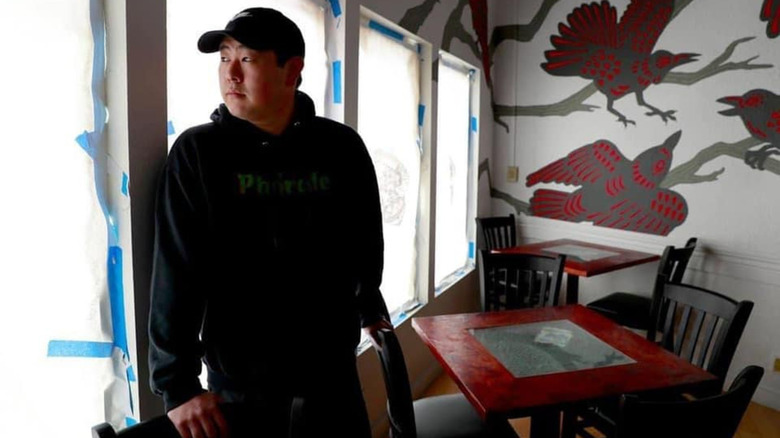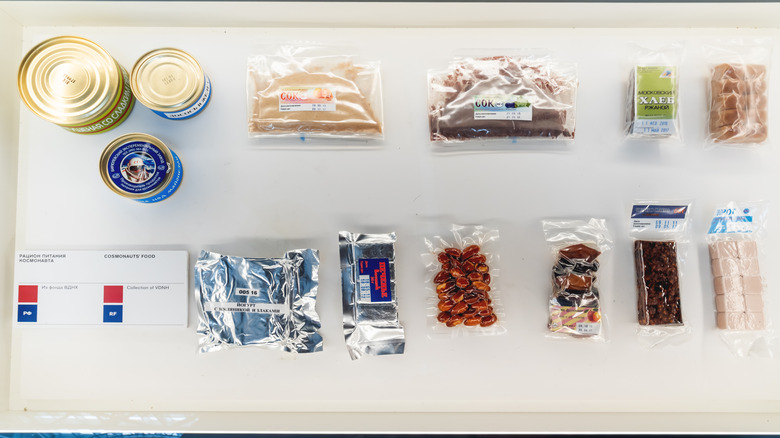Chef Young Cho Has A Plan For NASA's Food For Mars
In order to figure out what astronauts might eat during a trip to Mars, NASA hasn't been talking to too many chefs. Instead, the agency turns to people such as food engineer Ann Barrett from the U.S. Army Natick Soldier Research, Development and Engineering Center (via Inside Science). It's not Le Cordon Bleu, but NASA is probably right to ask people from engineering centers, not culinary schools, the important questions about space food. For example, how long does it take vitamins to lose their potency? After all, a lot of the astronauts' food will be packed for them on Earth to be eaten years later.
According to NASA, just about the only food scientists have figured out how to grow in space is lettuce. And astronauts are just starting to get a handle on how to bake in zero gravity, per the BBC. So what can a chef such as Seattle's Young Cho contribute to the culinary conversation around future trips to Mars?
For humans, eating has never been about sustenance only — at least not in the thriving, culturally rich communities many of us know today. Eventually, if Richard Branson, Jeff Bezos, and Elon Musk have their way, space travel won't be limited to highly disciplined astronauts who are okay with eating all of their meals out of a tube. As Wired pointed out, the first Earthlings to colonize Mars are going to want food that actually imparts pleasure, in addition to sustenance. This is where Cho's chef skills come in.
Space food should be culturally diverse, chef Young Cho says
Young Cho is part of a team participating in the Deep Space Food Challenge, a NASA contest to come up with ways to feed Mars colonists (via Eater Seattle). The food needs to be nutritious and have a long shelf life, true, but it also needs to taste good so the space explorers can "keep their mental state intact," as a NASA spokesperson told Eater Seattle.
Cho's team for the NASA contest, dubbed "Ad Astra," decided to work on improving the types of foods astronauts already eat. They already go for Peanut M&M's, to take one example, so Cho and his team tried to reinvent the snack with no fillers and a longer shelf life. Cho's group also turned to unusual seasonings such as burdock root and balloon flower to enhance the flavors in space food, per Westside Seattle.
Cho was a big part of the Ad Astra team's effort to offer a culturally diverse menu to astronauts. Cho is Korean American, and one of the foods he and the team devised is a version of Korean bibimbap. "Not all astronauts are white, you know," Cho told Eater Seattle. "So if you're able to recreate the food they're familiar with, I think it'll be special for them to be able to feel like they're still grounded."
Cho and the rest of the Ad Astra team should find out in September whether they advance to the next round of NASA's Deep Space Food Challenge.

